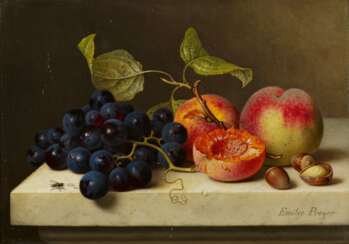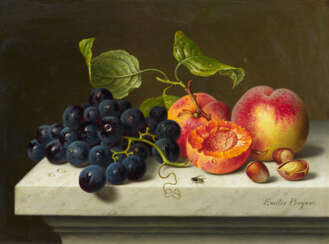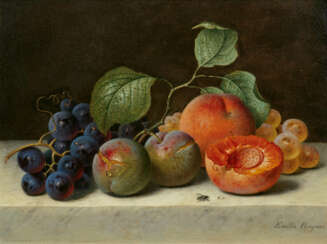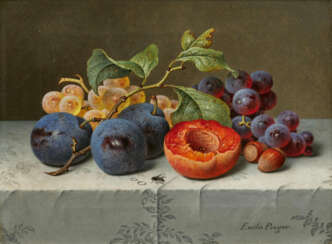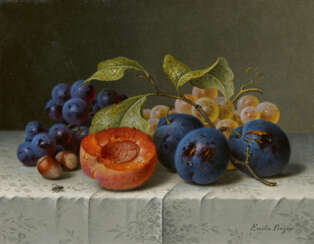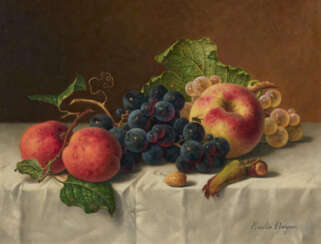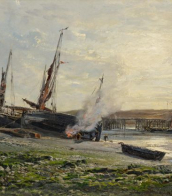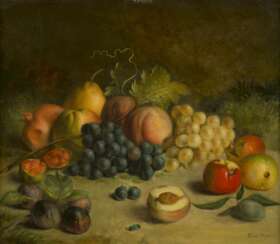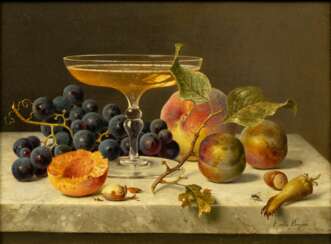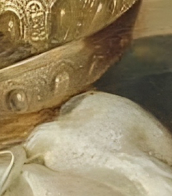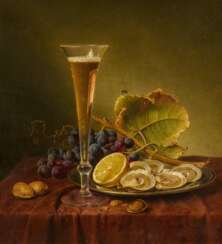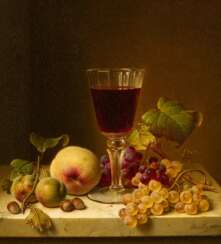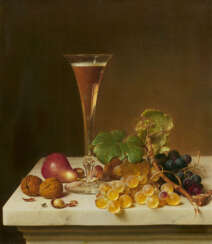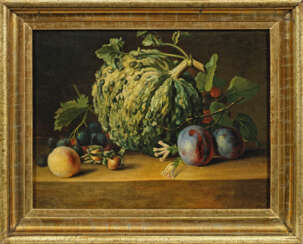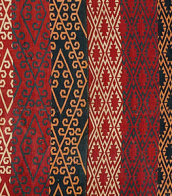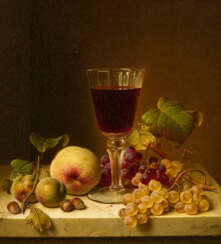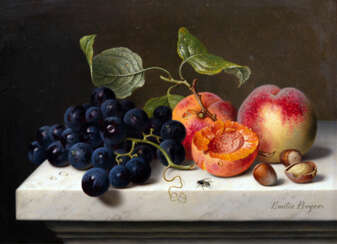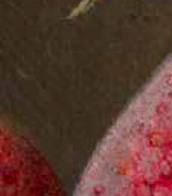emilie preyer (1849 - 1930)
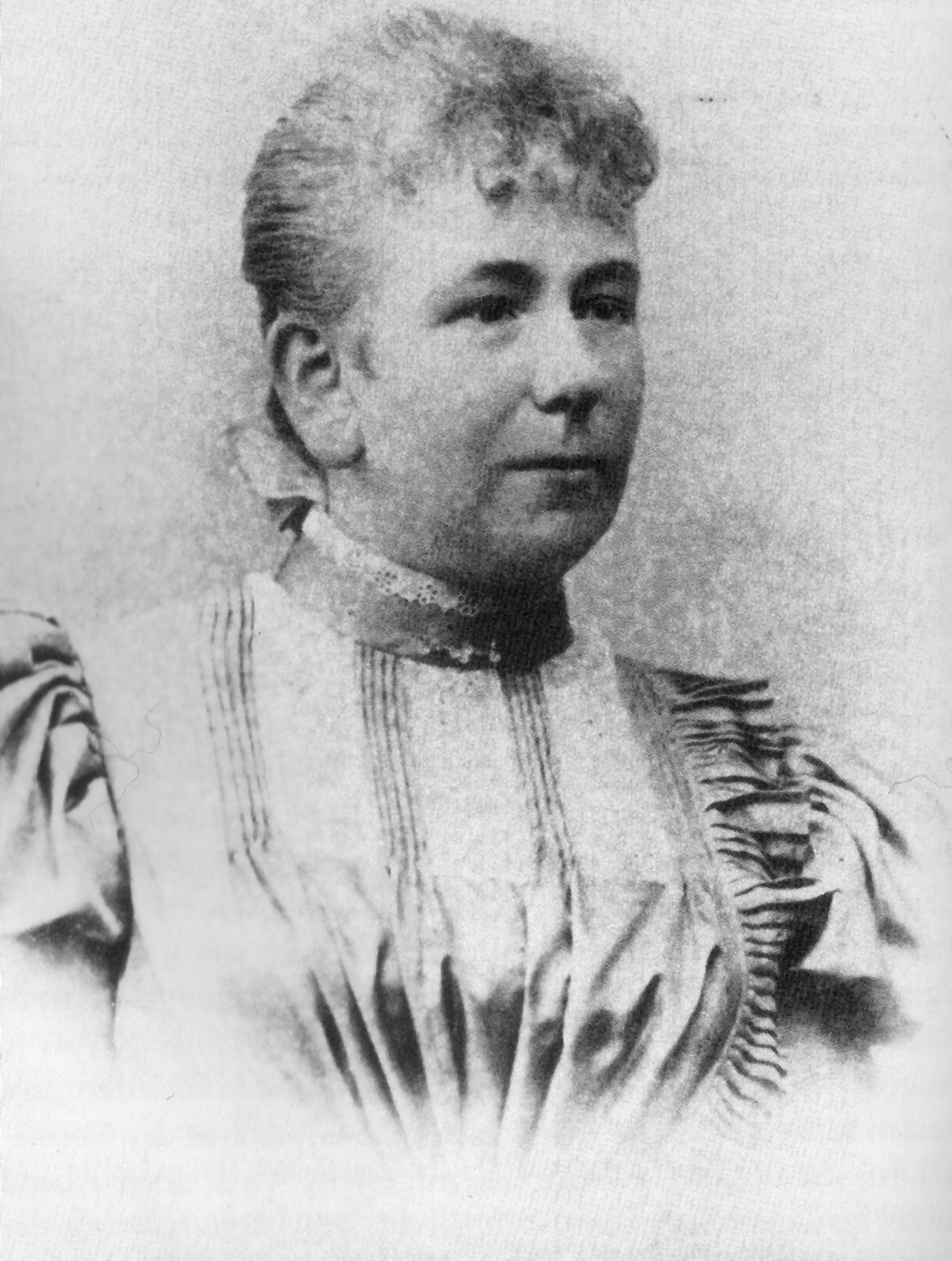
Emilie Preyer was a German painter of the last third of the nineteenth and first third of the twentieth centuries. She is known as a painter and a master of still life.
Emilie Preyer studied painting under her father Johann Wilhelm Preyer and worked in the same meticulous technique. She created still lifes with fruit and flowers. Over 250 of her paintings are in the Metropolitan Museum of Art in New York and the Philadelphia Museum of Art, as well as in private collections in the United Kingdom and the United States.
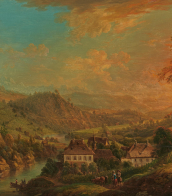

Emilie Preyer was a German painter of the last third of the nineteenth and first third of the twentieth centuries. She is known as a painter and a master of still life.
Emilie Preyer studied painting under her father Johann Wilhelm Preyer and worked in the same meticulous technique. She created still lifes with fruit and flowers. Over 250 of her paintings are in the Metropolitan Museum of Art in New York and the Philadelphia Museum of Art, as well as in private collections in the United Kingdom and the United States.


Emilie Preyer was a German painter of the last third of the nineteenth and first third of the twentieth centuries. She is known as a painter and a master of still life.
Emilie Preyer studied painting under her father Johann Wilhelm Preyer and worked in the same meticulous technique. She created still lifes with fruit and flowers. Over 250 of her paintings are in the Metropolitan Museum of Art in New York and the Philadelphia Museum of Art, as well as in private collections in the United Kingdom and the United States.


Emilie Preyer was a German painter of the last third of the nineteenth and first third of the twentieth centuries. She is known as a painter and a master of still life.
Emilie Preyer studied painting under her father Johann Wilhelm Preyer and worked in the same meticulous technique. She created still lifes with fruit and flowers. Over 250 of her paintings are in the Metropolitan Museum of Art in New York and the Philadelphia Museum of Art, as well as in private collections in the United Kingdom and the United States.
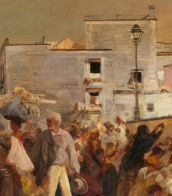

Emilie Preyer was a German painter of the last third of the nineteenth and first third of the twentieth centuries. She is known as a painter and a master of still life.
Emilie Preyer studied painting under her father Johann Wilhelm Preyer and worked in the same meticulous technique. She created still lifes with fruit and flowers. Over 250 of her paintings are in the Metropolitan Museum of Art in New York and the Philadelphia Museum of Art, as well as in private collections in the United Kingdom and the United States.


Emilie Preyer was a German painter of the last third of the nineteenth and first third of the twentieth centuries. She is known as a painter and a master of still life.
Emilie Preyer studied painting under her father Johann Wilhelm Preyer and worked in the same meticulous technique. She created still lifes with fruit and flowers. Over 250 of her paintings are in the Metropolitan Museum of Art in New York and the Philadelphia Museum of Art, as well as in private collections in the United Kingdom and the United States.
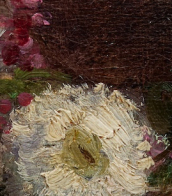

Emilie Preyer was a German painter of the last third of the nineteenth and first third of the twentieth centuries. She is known as a painter and a master of still life.
Emilie Preyer studied painting under her father Johann Wilhelm Preyer and worked in the same meticulous technique. She created still lifes with fruit and flowers. Over 250 of her paintings are in the Metropolitan Museum of Art in New York and the Philadelphia Museum of Art, as well as in private collections in the United Kingdom and the United States.
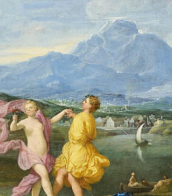

Emilie Preyer was a German painter of the last third of the nineteenth and first third of the twentieth centuries. She is known as a painter and a master of still life.
Emilie Preyer studied painting under her father Johann Wilhelm Preyer and worked in the same meticulous technique. She created still lifes with fruit and flowers. Over 250 of her paintings are in the Metropolitan Museum of Art in New York and the Philadelphia Museum of Art, as well as in private collections in the United Kingdom and the United States.
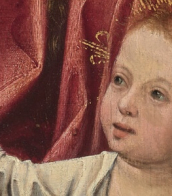

Emilie Preyer was a German painter of the last third of the nineteenth and first third of the twentieth centuries. She is known as a painter and a master of still life.
Emilie Preyer studied painting under her father Johann Wilhelm Preyer and worked in the same meticulous technique. She created still lifes with fruit and flowers. Over 250 of her paintings are in the Metropolitan Museum of Art in New York and the Philadelphia Museum of Art, as well as in private collections in the United Kingdom and the United States.
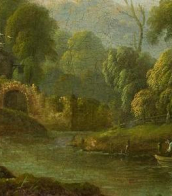
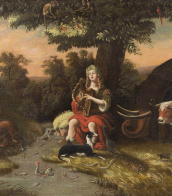
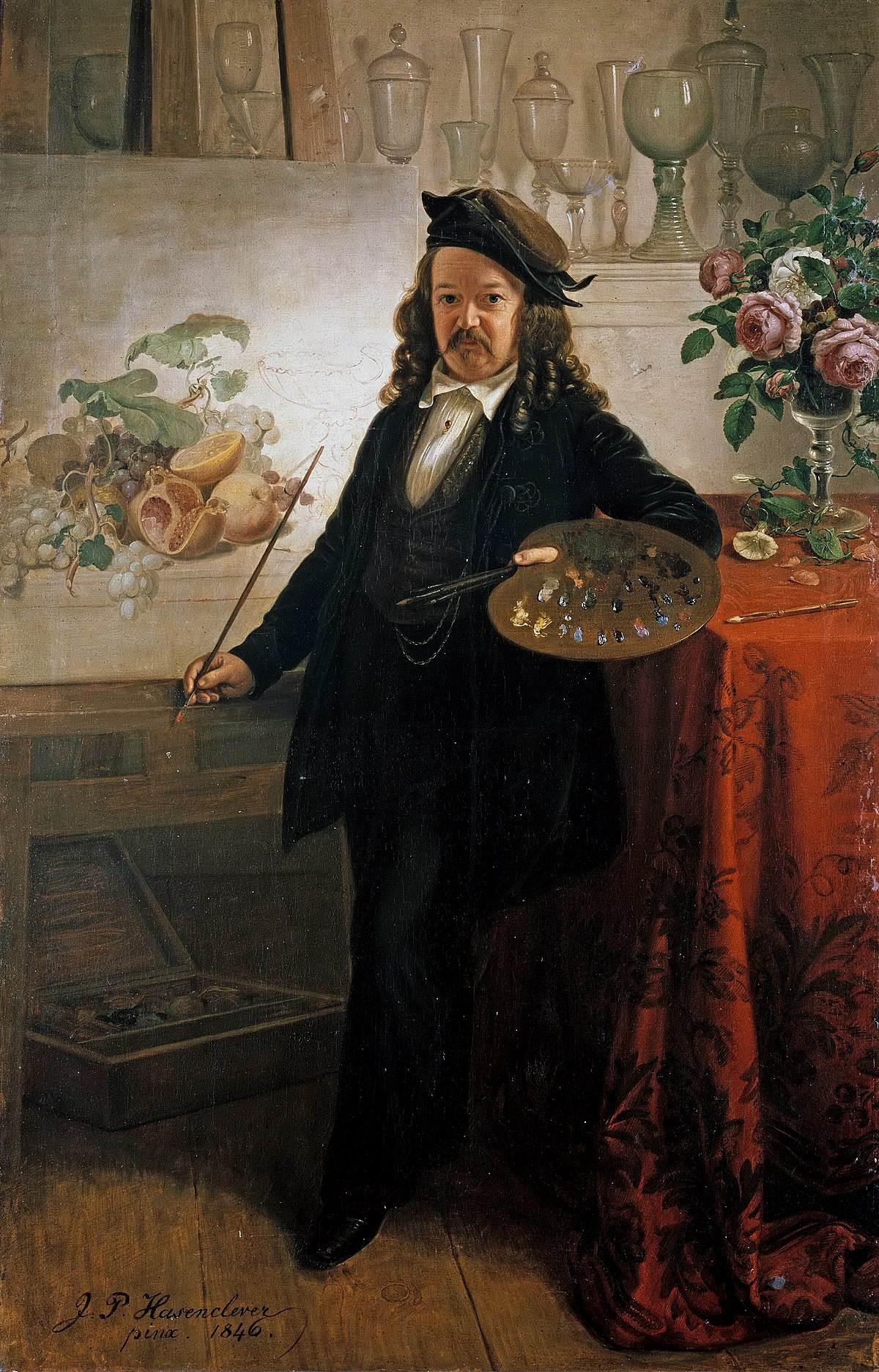
Johann Wilhelm Preyer was a German painter of the second half of the 19th century. He is known as a painter, a representative of the Düsseldorf school of painting.
Preyer specialized in still lifes with flowers and fruit, which were notable for their detailed and meticulous elaboration. He is considered the preeminent painter of this genre of his era. His work is common in the United States, but there are also important pieces in the Berlin National Gallery and other German museums.
Preyer was one of the first representatives of the Düsseldorf School and was instrumental in founding the Düsseldorf Artists' Association.


Johann Wilhelm Preyer was a German painter of the second half of the 19th century. He is known as a painter, a representative of the Düsseldorf school of painting.
Preyer specialized in still lifes with flowers and fruit, which were notable for their detailed and meticulous elaboration. He is considered the preeminent painter of this genre of his era. His work is common in the United States, but there are also important pieces in the Berlin National Gallery and other German museums.
Preyer was one of the first representatives of the Düsseldorf School and was instrumental in founding the Düsseldorf Artists' Association.


Johann Wilhelm Preyer was a German painter of the second half of the 19th century. He is known as a painter, a representative of the Düsseldorf school of painting.
Preyer specialized in still lifes with flowers and fruit, which were notable for their detailed and meticulous elaboration. He is considered the preeminent painter of this genre of his era. His work is common in the United States, but there are also important pieces in the Berlin National Gallery and other German museums.
Preyer was one of the first representatives of the Düsseldorf School and was instrumental in founding the Düsseldorf Artists' Association.


Johann Wilhelm Preyer was a German painter of the second half of the 19th century. He is known as a painter, a representative of the Düsseldorf school of painting.
Preyer specialized in still lifes with flowers and fruit, which were notable for their detailed and meticulous elaboration. He is considered the preeminent painter of this genre of his era. His work is common in the United States, but there are also important pieces in the Berlin National Gallery and other German museums.
Preyer was one of the first representatives of the Düsseldorf School and was instrumental in founding the Düsseldorf Artists' Association.



